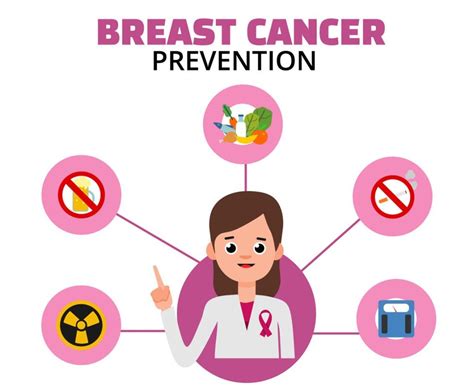How to Prevent Breast Cancer: A Guide to Reducing Your Risk
Breast cancer is a prevalent concern, affecting millions worldwide. While there's no guaranteed way to prevent it entirely, proactive measures significantly reduce your risk. This comprehensive guide explores actionable steps you can take to safeguard your health.
Understanding Your Risk Factors
Before diving into preventative measures, understanding your risk factors is crucial. Knowing your family history, lifestyle choices, and genetic predispositions helps you tailor a preventative strategy.
Family History
A strong family history of breast cancer, particularly in close relatives like mothers or sisters, substantially increases your risk. Regular screenings become even more critical in these cases.
Genetic Predisposition
Certain genetic mutations, like BRCA1 and BRCA2, significantly elevate breast cancer risk. Genetic testing can identify these mutations, allowing for proactive medical management. Consult a genetic counselor to discuss your risk and testing options.
Lifestyle Choices
Many lifestyle factors contribute to breast cancer risk. These are often modifiable, offering opportunities for significant risk reduction.
Lifestyle Changes for Breast Cancer Prevention
Adopting a healthy lifestyle is one of the most powerful tools in your arsenal against breast cancer. These changes not only reduce cancer risk but also improve overall well-being.
Maintaining a Healthy Weight
Obesity is linked to increased estrogen levels, a factor in breast cancer development. Maintaining a healthy weight through balanced nutrition and regular exercise is essential.
Regular Exercise
Physical activity lowers estrogen levels and improves overall health, contributing to reduced cancer risk. Aim for at least 150 minutes of moderate-intensity aerobic exercise or 75 minutes of vigorous-intensity aerobic exercise per week.
Healthy Diet
A diet rich in fruits, vegetables, and whole grains, while limiting processed foods, red meat, and sugary drinks, supports overall health and reduces inflammation, potentially minimizing cancer risk. Focus on incorporating antioxidant-rich foods.
Limiting Alcohol Consumption
Excessive alcohol consumption increases estrogen levels and has been linked to increased breast cancer risk. Moderation or abstinence is recommended.
Breastfeeding
Studies suggest that breastfeeding may reduce the risk of breast cancer. While not a foolproof method, it's considered a beneficial factor.
Early Detection: Crucial for Improved Outcomes
Early detection remains a cornerstone of breast cancer management. Regular screenings significantly improve survival rates.
Self-Exams
Performing regular breast self-exams allows you to familiarize yourself with your breasts' texture and identify any unusual changes promptly. Consult your doctor if you notice anything unusual.
Mammograms
Mammograms are crucial screening tools, particularly for women over 40. Follow your doctor's recommendations for mammogram frequency based on your individual risk factors.
When to Consult a Doctor
Don't hesitate to consult your doctor if you have concerns about your breast cancer risk or notice any changes in your breasts, such as lumps, pain, nipple discharge, or skin changes. Early detection is key.
Conclusion: Empowering Yourself Against Breast Cancer
While you can't eliminate all risks, taking proactive steps significantly reduces your chances of developing breast cancer. By adopting a healthy lifestyle, undergoing regular screenings, and staying informed, you empower yourself to protect your health and well-being. Remember, consistent effort and proactive healthcare are your best allies.
